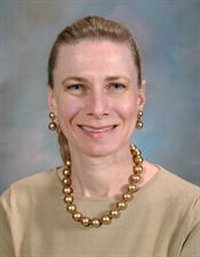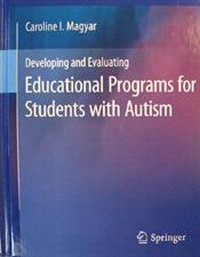New Book Helps Educators Build Effective Autism Programs
New Book Helps Educators Build Effective Autism Programs
…

Caroline Magyar, Ph.D.,
February 21, 2011
Autism programs need to be as flexible as their students are different from one another. No effective one-size-fits-all program exists for educating children on the autism spectrum, but one University of Rochester Medical Center (URMC) professor has written a book to guide skilled educators in creating, evaluating and modifying programs to fit the needs of their students and the skills of their staff.
Caroline Magyar, Ph.D., associate professor of Pediatrics at URMC’s Strong Center for Developmental Disabilities, and author of Developing and Evaluating Educational Programs for Students with Autism (Springer, 2011), believes the best programs for children with autism are those that are always evolving to meet their needs.
“There are a plethora of packaged curricula that educators can use with their students, but no child with autism is the same as another, so no one program will work for every child. What educators really need are the tools to create effective programs for the students they have – and the tools to measure whether those programs are working,” Magyar said. “This book addresses all of those needs.”

university of rochester medical center, urmc, caroline magyar ph.d., strong center for developmental disabilities, developing and evaluating educational programs for students with autism
Magyar’s career working with children on the spectrum began at the classroom level and progressed from there to the school- and district-level, and now to the system-level. She consults with schools and organizations across New York state to help them design programs that work for their students and their staff. Her goal is to assist educators to become independent and not need her services any longer.
“They become empowered in the process. I give them the tools to see where they are and what they need to get where they want to go,” Magyar said. “They have all the ingredients they need to be successful and I just help them put them together so they work and benefit their students. It’s essentially what this book does for educators.”
Magyar is now working on a field manual that can help educators who have less experience designing, implementing and evaluating programs for children with autism.
Research Bio Dr. Magyar has several lines of research that link directly to community-practice. The first is in educational program development and evaluation. Youth with autism require extensive special education services that often challenge a school’s capacity to develop and implement effective programming. Given the diversity of student needs, and of school cultures with respect to program development and evaluation it is unlikely that any one approach to educational programming for youth with autism will

* The above story is reprinted from materials provided by University of Rochester Medical Center



















